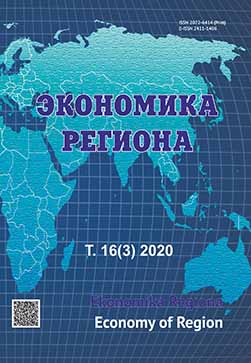The Management of Municipal Solid Waste in Compliance with Circular Economy Criteria: the Case of Russia
The Management of Municipal Solid Waste in Compliance with Circular Economy Criteria: the Case of Russia
Author(s): Hans Wiesmeth, Natalia Vladimirovna StarodubetsSubject(s): Economy
Published by: Институт экономики Уральского отделения Российской академии наук
Keywords: MSW management; circular economy; business models; waste hierarchy; waste prevention; waste utilisation; recycling; landfilling; incentive-compatible regulations; producer responsibility organisation
Summary/Abstract: In Russia, increasing amounts of municipal solid waste (MSW) accompanied by environmental degradation have recently led to changes in legislation. Their main goal is to reduce landfilling, to increase utilisation, to introduce the principle of extended producer responsibility (EPR). These are first steps towards a circular economy. The main purpose of the paper is to study how to improve the efficiency of Russian MSW management using circular economy criteria. The study relies on methods such as systemic analysis and synthesis, comparison and generalisation, stakeholder analysis. The detailed analysis of current MSW management system in Russia showed contradictions between its participants regarding the distribution of material waste streams and financing, which leads to difficulties in EPR principle implementation and to possible problems in achieving the goals of the entire MSW management system. According to its current design, recycling receives maximum government support, opposite to reuse and prevention of waste: companies involved in these activities are still outside the scope of MSW management system, and the authors recommend considering their legislative inclusion in it. The critical analysis of Russia’s EPR design compared with EU experience showed problems such as low environmental fees, low utilisation standards and the lack of households’ involvement, which makes EPR design inefficient. The current regulations may help divert some waste from landfills to utilisation and recycling, but beyond that the incentives do not yet correspond to those required for implementing the EPR principle and a circular economy. Consequently, the paper provides recommendations for amending this, which can be used by decision makers at the federal level to improve MSW management system and increase its efficiency.
Journal: Экономика региона
- Issue Year: 16/2020
- Issue No: 3
- Page Range: 725-738
- Page Count: 14
- Language: English

